Plenary Sessions
If you miss any of the Plenary Sessions at the ESA 2010 Annual Meeting listen to them now. Plenary 1 Panel  : Environmental disasters in the US. Plenary 2
: Environmental disasters in the US. Plenary 2  : Steve Running: Innocence Lost. Plenary 3
: Steve Running: Innocence Lost. Plenary 3  : Dr. John Holdren: Energy, the Environment, and the Millennium Assessment of Human Behavior.
: Dr. John Holdren: Energy, the Environment, and the Millennium Assessment of Human Behavior.
Sunday Opening Plenary
Sunday, August 1, 5:15 – 6:30 PM, David L. Lawrence Convention Center, Pittsburgh, PA
Environmental disasters in the US: exploring our reactive mode
Gulf of Mexico oil disaster, Burmese Python and Asian Carp invasions, catastrophic forest fires in the West, wetland loss and Hurricane Katrina—human decisions have figured into how all of these disasters have played out. A panel of experts will offer several case studies from prominent environmental disasters—including the Deepwater Horizon Oil Rig accident—and will explore the ways in which society assesses risk, and why we so often find ourselves reacting instead of proactively taking steps to minimize or avoid grave outcomes. ESA Vice President for Public Affairs Laura Huenneke (Northern Arizona University) will moderate.
Panelists include Robert Twilley, Department of Oceanography and Coastal Science and Director, Wetland Biogeochemistry Institute at Louisiana State University; David Lodge, Department of Biological Sciences at the University of Notre Dame; David Dzombak, Walter J. Blenko, Sr. Professor of Environmental Engineering in the Department of Civil and Environmental Engineering at Carnegie Mellon University; and Baruch Fischhoff, Howard Heinz University Professor in the departments of Social and Decision Sciences and of Engineering and Public Policy at Carnegie Mellon University. Dr. Twilley is an expert in wetlands and wetlands management on the coast of the Gulf of Mexico. He will highlight how wetland degradation exacerbated the impact of hurricanes in the region and will also discuss the recent oil disaster in the Gulf. Dr. Lodge is an invasive species expert, who will showcase past invasions and discuss the risk of similar disasters in the future, such as the spread of Asian Carp to the Great Lakes. Dr. Dzombak, who directs the Steinbrenner Institute for Environmental Education and Research at Carnegie Mellon, studies water quality engineering and contaminated site remediation. He will discuss the deposition of contaminated sediment in the neighborhoods of New Orleans from the flooding induced by Hurricane Katrina. Dr. Fischhoff is an expert in risk analysis and decision science, whose research focuses on the communication of risk between experts and non-experts, particularly in areas such as human health, climate change and the environment, and national security.
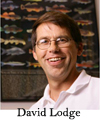


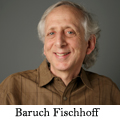
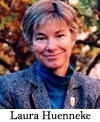
Scientific Plenary & ESA Awards Session
Monday, August 2, 8 AM—10AM, David L Lawrence Convention Center, Blrm B/C
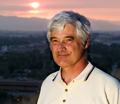 Keynote: Steve Running
Keynote: Steve Running
Innocence lost: Will ecologists become the future global carbon cops?
Forest ecologist Steve Running develops computer models of global and regional ecosystems to study Earth’s changing climate. Dr. Running is a professor at the University of Montana and a team member of the NASA Earth Observing System. He is on the board of the Intergovernmental Panel on Climate Change (IPCC) and was a chapter lead author for the 4th Assessment of the IPCC report. The IPCC was awarded the Nobel Peace Prize in 2007.
Recent Advances Lecture
Wednesday, August 4, 12:15-1:15 pm
David L Lawrence Convention Center, Blrm B/C
Presider: Frank Gilliam, ESA Program Chair
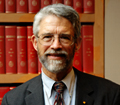 Keynote Speaker: John P. Holdren, Assistant to the President for Science and Technology and Director of the Office of Science and Technology in the Executive Office of the President of the United States. (Download the Powerpoint Presentation)
Keynote Speaker: John P. Holdren, Assistant to the President for Science and Technology and Director of the Office of Science and Technology in the Executive Office of the President of the United States. (Download the Powerpoint Presentation)
Energy, the Environment, and the Millennium Assessment of Human Behavior
Prior to joining the Obama Administration, he was the Teresa and John Heinz Professor of Environmental Policy and Director of the Program on Science, Technology, and Public Policy at the Kennedy School of Government, and Professor of Environmental Science and Policy in the Department of Earth and Planetary Sciences, at Harvard University. Concurrently, from 2005, he served as Director of the Woods Hole Research Center and, from 2002, as co-chair of the independent, bipartisan National Commission on Energy Policy.
Dr. Holdren holds degrees in aerospace engineering and theoretical plasma physics from MIT and Stanford and is the author of some 350 publications on global environmental change, energy technology and policy, nuclear arms control and nonproliferation, and science and technology policy. He is a member of the National Academy of Sciences, the National Academy of Engineering, the American Academy of Arts and Sciences, and the Council on Foreign relations, as well as a foreign member of the Royal Society of London. He is also a former President of the American Association for the Advancement of Science; former Chairman of the Federation of American Scientists; and one of the first recipients, in 1981, of a MacArthur Foundation Prize Fellowship. In 1995 he gave the Nobel Peace Prize acceptance lecture on behalf of the Pugwash Conferences on Science and World Affairs, an international arms-control and scientificcooperation organization in which he held leadership positions from 1982 to 1997.
From 1994 to 2001, Dr. Holdren served as a member of President Clinton's Council of Advisors on Science and Technology (PCAST); from 1994 through 2004 he chaired the Committee on International Security and Arms Control of the National Academy of Sciences; and from 1991 to 2005 he was a member of the Board of Directors of the John D. and Catherine T. MacArthur Foundation. At the beginning of his career he held positions at the Lockheed Missiles and Space Company, the Lawrence Livermore National Laboratory, and the Environmental Quality Laboratory and Division of Humanities and Social Sciences at the California Institute of Technology, and from 1973 until 1996 he was the founding core faculty member and co-director of the campus-wide, interdisciplinary, graduate-degree-granting Energy and Resources Group at the University of California, Berkeley.
He has been married for 43 years to Dr. Cheryl E. Holdren, a biologist; they have two grown children and five grandchildren ages 3 to 18. Holdren was born in Sewickley, Pennsylvania, and grew up in San Mateo, California, where he attended public schools: Beresford Elementary, Borel Junior High, and Hillsdale High School.
ESA Closing Plenary Lunch: Summary of Meeting
Friday, August 6, 11:30 am, Westin, Somerset East/West, $27, TK-7
Mary Power, Maria Uriarte, Rob Salguero-Gomez, and Tom Lovejoy
The Closing Plenary Lunch will provide an informally structured opportunity for attendees to hear the perspectives of a panel of distinguished ecologists on the meeting just past, and their more general reflections on the history and future of the Society's meetings.